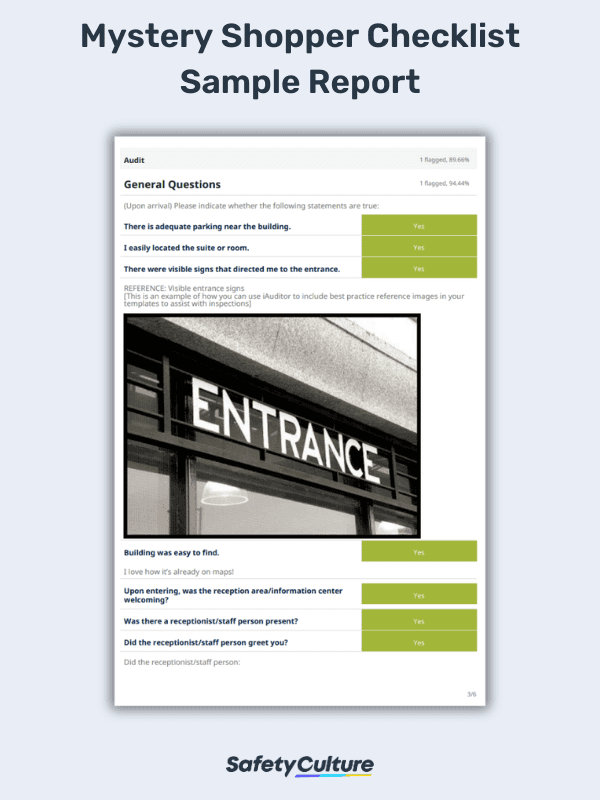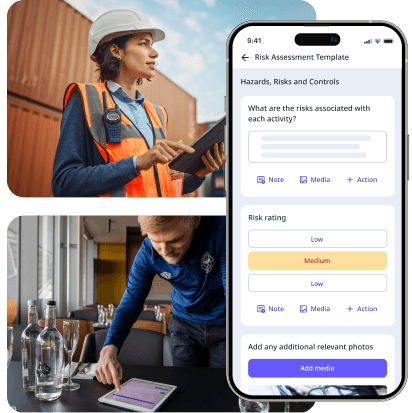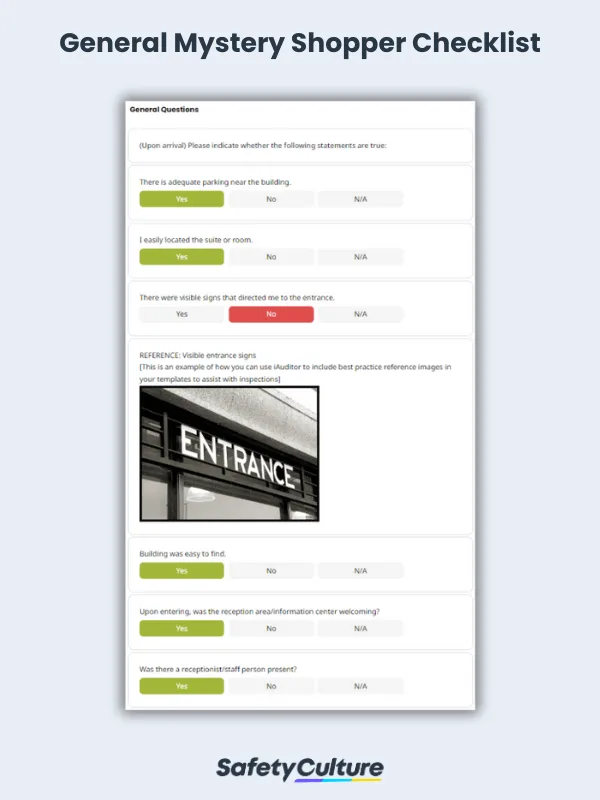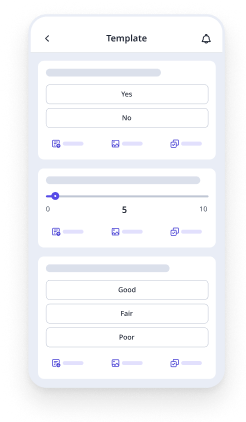Published 22 Feb 2026
Article by
5 min read
What is a Mystery Shopper Checklist?
A mystery shopper checklist is a tool used by secret shoppers to assess and record customer experience feedback.A mystery shopper, also known as a secret shopper, ghost shopper, or anonymous shopper, is usually an agency-employed individual hired by companies to go to actual business premises and provide insight into a typical customer experience.Used by organizations and companies for internal checks or competitive market research purposes, mystery shopper checklists help evaluate the performance of retail establishments, restaurants, hotels, and many other businesses.
Also called mystery shopper forms, mystery shopper checklists typically cover multiple areas of an establishment such as customer service, cleanliness, product quality, service quality, overall layout, and compliance with safety regulations, service guidelines, and business procedures.
Mystery Shopper Questions
Mystery shopping is a marketing technique used by businesses to collect information that can improve the quality of their products and services. Mystery shopping checklists contain a list of questions that can guide mystery shoppers on what to do and what to observe during the actual mystery shopper survey. Here are what mystery shoppers typically observe:
Physical features
Mystery shoppers are usually asked to observe the physical features of an establishment. Most common questions for assessing physical features are :
Was the store clean and well-maintained? Were the aisles clutter-free?
Were promotional signs clear and well-maintained?
Staff
Staff interactions are usually recorded on the mystery shopping checklists to assess if the service provided in an establishment is meeting business expectations and following protocol. The questions for assessing staff are :
Were employees wearing designated uniforms or protective equipment if required?
Did the staff offer assistance or recommendations? Were they knowledgeable about products?
Goods and services
Mystery shopping checklists ultimately will inquire such mystery shopper questions to help assess the quantity and quality of products and services offered at establishments. These questions include :
Were the products or services you were looking for in stock? If not, were alternatives offered?
Was the checkout process efficient and quick? Were cashiers polite and accurate with purchases?
How Mystery Shopping Is Done with Examples
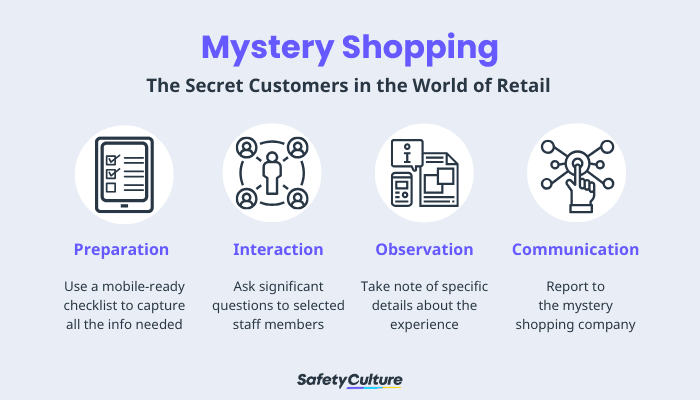
Mystery shopping is done by an organization hiring a secret shopper as a customer entering their own or a competitor’s business to grade a product and/ or service offering. A good mystery shop or visit will set specific information-gathering objectives. Here are some examples of how mystery shopping is usually done:
Mystery Shopping Example Scenario #1: If a restaurateur aims to gauge the overall customer experience, then he/ she would ask the mystery shopper to simply visit the restaurant, order a meal, and generally grade the experience. The mystery shopper would typically be asked to assess the restaurant’s appearance, waitstaff, food, and timeliness.
Mystery Shopping Example Scenario #2 :If a retailer wants to evaluate the handling of returns, they would normally be more specific and set detailed instructions for the mystery shopper to follow. For example 1) purchase a specific item; 2) leave the store; 3) return to a different attendant; and 4) make a specific statement to the attendant about the purchase error. The mystery shopper would then be asked a series of questions grading the overall experience.
Whether it is general or specific information-gathering mystery shopping, a checklist is typically used to ensure consistency in measuring experiences.
Mystery Shopping Benefits
With the global economy evolving toward omnichannel commerce, mystery shopping has never been more vital as a sales and merchandising tool for retailers.Customers in the digital age can also easily broadcast their experience with a certain brand—whether good or bad. Maximize the following benefits of mystery shopping in an organization:
Gain Customer Feedback – Businesses can get multiple customer perspectives through a mystery shopper, such as the establishment’s ambiance, the kind of service customers get, the overall cleanliness of the place, and how employees present themselves. These are only a handful of invaluable information that can be gathered through a mystery shopper posing as a customer.
Reinforce and Verify Policies – With effective secret shopping programs, verifying if newly cascaded policies are followed by different branches or departments can be confirmed. Moreover, it can be determined if those rolled-out directives are truly effective across the board.
Check on the Competition – Being able to compare the service provided and products offered by one’s company and competitors can give unprecedented insight on which areas to improve. Implementing findings from secret shopping can also help consistently position the business to stand out and gain an edge over competitors.
How to Write a Mystery Shopper Report
Mystery shopper reports should be created according to the specifications of the hiring company or agency but they should always be accurate, unbiased, and comprehensive. They should provide clients insight on how to improve their products and services, as well as track competitor performance. Follow the steps below to write a mystery shopper report:
Indicate the correct primary information – Start the report by making sure that all data such as product name, staff name, store location, and time and date of mystery shopping are accurate.
Include generic to specific observations – Go through the store experience by observing general areas to very specific ones such as staff members, service, environment, and overall impression. Describe them as needed, but don’t stray away from the relevant areas of the report.
Use a rating system – It would be helpful to utilize responses that clearly specify the situation in each different area of the store. This can include answers such as yes, no, not satisfied, satisfied, and excellent, among others.
Attach image reference – Increase information accuracy by directly adding images to the report while mystery shopping.
Add notes and recommendations – Provide further insights into the report to strengthen its credibility and add explanations to any issues or areas of concern found.
